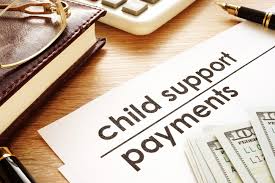
What is PA Child Support Calculator?
The PA Child Support Calculator is a tool used in the state of Pennsylvania to estimate the amount of child support that a parent may be required to pay or receive based on the state’s child support guidelines. This calculator considers a variety of factors such as the incomes of both parents, the number of children involved, and the custody arrangement.
The calculation of child support in Pennsylvania is governed by state law and is based on the “Income Shares Model,” which aims to ensure that the financial responsibility for a child is shared proportionately between both parents according to their respective incomes. The PA Child Support Calculator provides an estimate of the amount of child support that a court may order a parent to pay, although the actual amount may vary based on the specific circumstances of each case.
It’s important to note that the PA Child Support Calculator is not an official determination of child support and is provided for informational purposes only. Parents who are seeking to establish child support or modify an existing child support order should consult with an attorney or seek assistance from the Pennsylvania Department of Human Services, which operates the state’s child support program.
How to calculate Pennsylvania child support in 2025?
To calculate PA child support in 2025, follow these steps:
- Gather information about both parents’ incomes: This includes information about salaries, bonuses, commissions, and any other income sources. This information should be accurate and up-to-date.
- Determine the number of children involved: The number of children is an important factor in calculating child support.
- Determine the custody arrangement: If the children split their time equally between both parents, this is known as “shared custody.” If one parent has primary custody, this is known as “sole custody.”
- Use the Pennsylvania Child Support Guidelines to calculate the basic child support obligation: The guidelines use an Income Shares Model to calculate the basic child support obligation, which is the amount of money the non-custodial parent should pay to the custodial parent. The guidelines take into account both parents’ incomes and the number of children involved.
- Factor in additional expenses: In addition to the basic child support obligation, parents may need to pay additional expenses such as childcare, healthcare, and educational expenses. These expenses are typically divided between the parents in proportion to their incomes.
- Use the PA Child Support Calculator to estimate child support: The Pennsylvania Department of Human Services provides an online Child Support Calculator that can help parents estimate the amount of child support they may be required to pay or receive. The calculator takes into account all of the factors mentioned above and provides an estimate of the monthly child support obligation.
It’s important to note that child support calculations can be complex and may require the assistance of an attorney or a professional child support calculation service. The PA Child Support Calculator is intended as a tool to help parents estimate child support and is not a substitute for legal advice.

Pennsylvania’s child support guidelines
As of March 2025, Pennsylvania’s child support guidelines underwent their most recent review in late 2024, fulfilling federal requirements to assess the economic data on the cost of raising children.
pacourts.us This review ensures that child support calculations remain aligned with current economic conditions.
Pennsylvania employs the “Income Shares” model to determine child support obligations, reflecting the combined income that would have been available to the child if the household had remained intact. This model considers both parents’ incomes to estimate the funds available for the child’s upbringing.
For those seeking to estimate their child support obligations, the Pennsylvania Child Support Estimator is available online. This tool provides an estimate of the monthly child support amount based on the inputs provided.
It’s important to note that while online calculators can offer general estimates, they may not account for all individual circumstances. For precise calculations and legal guidance, consulting with a family law attorney or the local Domestic Relations Section is advisable.
For a detailed understanding of the current child support guidelines, including the basic child support schedule, refer to Rule 1910.16-3 of the Pennsylvania Code.
In summary, Pennsylvania’s child support guidelines are periodically reviewed to reflect the current economic landscape, ensuring that child support obligations are fair and appropriate.
When did PA child support calculator start?
Pennsylvania’s child support program was established in 1974, as part of the federal Social Security Act. The purpose of the program is to ensure that both parents are financially responsible for their children, regardless of whether they are living together or not. Since its establishment, the Pennsylvania child support program has undergone several changes and updates to its laws and guidelines to ensure that child support obligations are fair and equitable for both parents.
How adjustments are made in Basic Pennsylvania child support for additional expenses?
In Pennsylvania, adjustments to the basic child support obligation are made for additional expenses that are necessary for the children’s well-being. These expenses may include child care, health care, and educational expenses.
When calculating child support, the PA Child Support CalculatorGuidelines take into account the basic child support obligation, as well as any additional expenses that are deemed necessary. These expenses are typically divided between the parents in proportion to their incomes.
To adjust for additional expenses, the following steps are typically taken:
- Determine the total cost of the additional expenses: This includes expenses such as child care, health care, and educational expenses.
- Determine each parent’s proportionate share of the additional expenses: This is based on each parent’s income in relation to the total income of both parents.
- Add the proportionate share of the additional expenses to the basic child support obligation: This results in a new total child support obligation that takes into account the additional expenses.
- Determine each parent’s share of the total child support obligation: This is based on each parent’s income in relation to the total income of both parents.
- Allocate the total child support obligation between the parents: This is done by multiplying each parent’s share by the total child support obligation.
By taking these steps, the Pennsylvania Child Support Guidelines ensure that child support obligations are fair and reflect the actual costs of raising a child. It’s important to note that child support calculations can be complex and may require the assistance of an attorney or a professional child support calculation service.
What is the average child support payment for one child in PA?
It’s difficult to provide an exact average child support payment for one child in PA as child support payments can vary widely depending on the specific circumstances of each case, such as each parent’s income, custody arrangement, and any additional expenses.
However, the Pennsylvania Department of Human Services provides a Child Support Guidelines Worksheet that can help estimate child support payments. According to the guidelines, as of September 2021, the basic child support obligation for one child for a non-custodial parent with a monthly net income of $3,000 is $605 per month.
It’s important to note that this is only an estimate and actual child support payments may be higher or lower depending on the specific circumstances of each case. Child support payments are determined by the court or through an agreement between the parents and can be influenced by a variety of factors, including each parent’s income, the child’s needs, and the custody arrangement.
How do I get child support in PA?
In Pennsylvania, obtaining child support involves a legal process to ensure that a non-custodial parent contributes financially to the upbringing of their child. Here’s how you can get child support in PA:
1. Determine Eligibility
Child support is typically sought by the custodial parent (the parent who has primary custody of the child). In Pennsylvania, both parents are responsible for the financial support of their children until they turn 18 (or 19 if still in high school).
2. File a Complaint for Child Support
You must file a complaint with the Domestic Relations Section (DRS) in the county where you or the other parent lives. You can visit the Domestic Relations Office, or you can file online through the PA Child Support Program website.
- Documents Needed:
- Proof of income (pay stubs, tax returns, etc.)
- Information about the child (birth certificate, Social Security number)
- Personal information about the other parent (address, employer details)
3. Attend a Support Conference
Once your complaint is filed, both parties will be notified to attend a support conference. During the conference, both parents’ financial information is reviewed, and a recommended support amount is calculated based on the PA Child Support Guidelines, which considers both parents’ income and the child’s needs.
- If both parties agree to the suggested amount, a support order will be issued.
- If there’s disagreement, the case may go before a judge or a master for a final determination.
4. Support Order Issuance
Once the court issues a support order, payments will be made either directly or through the PA Child Support Enforcement System. Payments are typically deducted from the non-custodial parent’s wages.
5. Enforcement of Child Support
If the non-custodial parent fails to pay, PA has several enforcement mechanisms, including:
- Wage garnishment
- Interception of tax refunds
- License suspension (driver’s or professional)
- Contempt of court charges, which can lead to jail time
6. Modification of Child Support
If circumstances change (income changes, custody arrangements change, etc.), either party can file for a modification of the child support order.
Key Resources:
- Pennsylvania Child Support Website: www.childsupport.state.pa.us
- Domestic Relations Section: Contact the office in your county for assistance with filing.
Would you like more detailed guidance on any specific step or related legal advice?

Bottom Lines for PA Child Support Calculator 2024
Here are the bottom lines for the PA Child Support Calculator in 2024:
- The PA Child Support Calculator is a tool that helps parents estimate the amount of child support they may be required to pay or receive under the state’s child support guidelines.
- The calculator takes into account a variety of factors, including the incomes of both parents, the number of children involved, and the custody arrangement.
- The calculation of child support in Pennsylvania is based on an Income Shares Model, which considers both parents’ incomes and the amount of time each parent spends with the children.
- Additional expenses, such as child care, health care, and educational expenses, may also be factored into the child support calculation.
- The PA Child Support Calculator is not a substitute for legal advice and should be used as a tool for estimating child support only.
- Child support calculations can be complex and may require the assistance of an attorney or a professional child support calculation service to ensure accuracy.
References
- PENNSYLVANIA CHILD SUPPORT CALCULATOR:
- https://www.humanservices.state.pa.us/csws/?Preference=Desktop&Owner=Client

